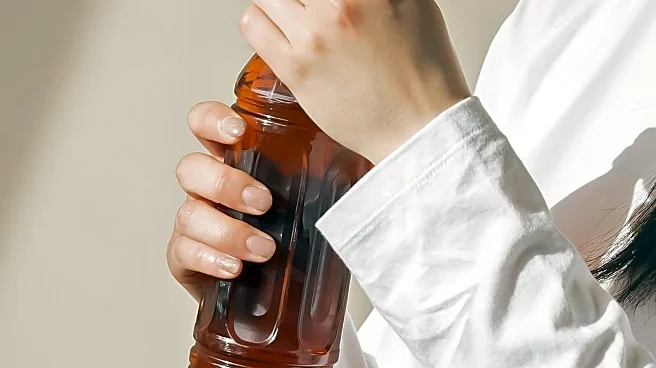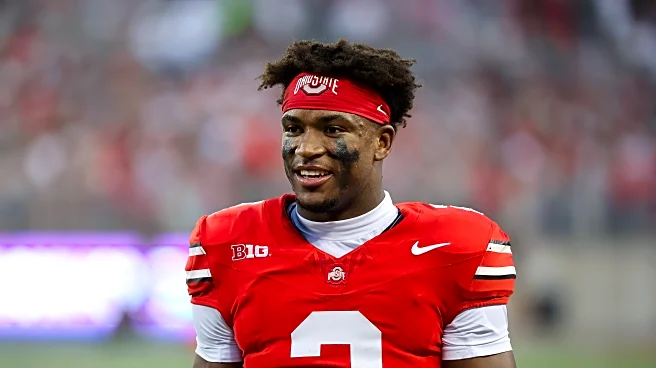What's Happening?
A recent Gallup poll indicates a significant decline in alcohol consumption among Americans, with only 54% reporting that they drink alcohol. This marks a record low since Gallup began tracking this behavior in 1939. Additionally, for the first time, a majority of Americans, 53%, believe that moderate drinking is detrimental to health. This shift in perception aligns with public health advocacy efforts, as noted by Dr. Katherine Keyes, an epidemiologist at Columbia University. The poll also highlights a decrease in drinking frequency among those who do consume alcohol, with only 24% having had a drink in the past 24 hours. The decline in alcohol consumption spans across various age groups, with notable reductions among adults aged 35 to 54 and those 55 and older.
Why It's Important?
The decline in alcohol consumption reflects a growing awareness of its health risks, challenging the long-held belief that moderate drinking could be beneficial. This shift could have significant implications for public health policies and guidelines. The American Heart Association and the American College of Cardiology have recently updated their guidelines, urging abstinence from alcohol. Additionally, federal officials are revisiting dietary guidelines related to alcohol consumption, which could lead to stricter recommendations. This trend may also impact the alcohol industry, as changing consumer attitudes could affect sales and marketing strategies.
What's Next?
The U.S. Department of Health and Human Services and the National Academies of Sciences, Engineering, and Medicine are conducting evidence reviews on alcohol consumption, which may influence future dietary guidelines. The USDA and HHS are expected to release updated guidelines by the end of the year, potentially reflecting the latest scientific evidence on alcohol's health risks. These developments could lead to more stringent public health messaging and regulatory changes, affecting both consumers and the alcohol industry.
Beyond the Headlines
The evolving perception of alcohol's health risks may also influence cultural attitudes towards drinking, potentially leading to a decrease in social drinking norms. This could have broader societal implications, including changes in social behaviors and a reduction in alcohol-related health issues. The focus on health risks associated with alcohol may also prompt further research into alternative beverages and lifestyle choices that promote well-being.










